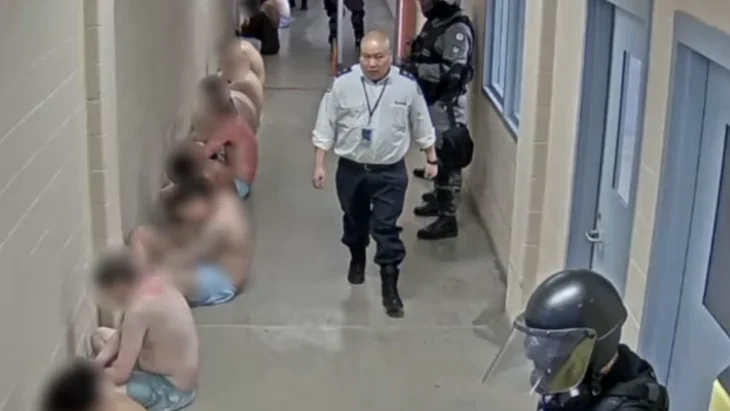Ontario's ombudsman is raising alarms about the “growing state of crisis” in provincial jails, stating that urgent reform is needed.
A record-breaking 6,870 complaints about conditions at Ontario's correctional facilities were reported in 2024–2025 by the ombudsman office. The Ontario Ombudsman office says it has received a “substantial increase in the volume and seriousness of complaints.” In the past year alone, 722 complaints were reported at Maplehurst Correctional Complex, in Milton. This is more than double the number of complaints reported in 2023–2024.
Inmates, their families and concerned citizens are increasingly raising alarms about poor living conditions and overcrowding in prison facilities in Canada. Last month, the Ontario Ombudsman's office launched an investigation into the conditions at Maplehurst in Milton after multiple complaints about an incident that occurred in December 2023.
In December 2023, nearly 200 of the 1500 inmates at Maplehurst were forcibly stripped, had their wrists zip-tied while facing a wall, and were left in extreme cold temperatures. The incident is reported to have occurred after an inmate punched a guard. On June 16, former and current inmates also launched a lawsuit regarding the incident.
The Chisholm v Ontario lawsuit seeks $30 million in damages caused by the unlawful conduct of the prison authorities in that incident. The list of abuse includes coordinated cell-by-cell strip searches of the entire unit, systematic assaults, wrenching the wrists of the inmates using zip ties, use of pepper spray, and beatings.

Maplehurst staff also turned on exhaust fans, allowing in the cold winter air as inmates were deprived of clothes in their cells following the strip search. Inmates were deprived of blankets, socks, showers, toilet paper, medical treatment, phones and other necessities for upwards of two days.
The lawsuit alleges that “the unlawful mass strip search, systematic assault, and collective punishment carried out by prison authorities at Maplehurst breached several sections of the Canadian Charter of Rights and Freedoms, including sections 7, 8, and 12.” These correspond to the right to life, liberty and security of the person; the right to be secure against unreasonable search or seizure; and the right not to be subjected to any cruel and unusual treatment or punishment.
The office reportedly received 60 complaints about the December 2023 incident prior to launching the investigation. The Ombudsman's office also reports some inmates received reduced sentences due to the traumatic incident. Notably, the investigation will not probe the conduct of individual correctional officers.
Provincial and Federal Governments in Lockstep to Restrict Bail
This upturn in complaints comes as Carney's Liberals are promising a new crime bill which would make bail even harder to get, depending on the offence. This bill, which the government will table this fall, will change bail conditions and sentencing provisions for organized crime, home invasions, car thefts involving violence, trafficking, and smuggling charges.
This comes after Bill C-48, which came into effect on January 4, 2024, expanded the situations where a “reverse onus” applies, shifting the burden onto certain offenders to justify why they deserve bail. The government says they will target organized crime violent offenders previously convicted with a weapon, and domestic abuse offenders. However, critics have warned of a disproportionate impact on the poor.
Legal aid experts like Julia Quigley, President of the union for legal aid lawyers in Saskatchewan, have argued that this federal bill may violate Charter rights. Every accused person has the right not to be denied bail without just cause and retain the presumption of innocence so people are not detained in custody without being convicted of a crime.
According to Statistics Canada, the majority of adults in correctional services are in remand rather than sentenced custody. As of 2018, the adult population in remand is 70% higher than the adult population serving a sentenced custody.

Premiers in Ontario, Manitoba, Saskatchewan, and B.C. have all advocated for bail reforms in recent years. Manitoba and Saskatchewan Premiers Kelvin Goertzen and Scott Moe pushed the federal government for reverse‑onus bail for firearms, knives, bear-spray offences, and violent acts at a Justice Ministers’ meeting in March 2023.
British Columbia Premier David Eby in June 2023 issued a bail directive directing Crown prosecutors to deny bail for violent charges by default. In early 2023, Premier Doug Ford announced $112 million to create “bail compliance teams,” fund OPP ROPE squads (Repeat Offender Parole Enforcement Squad), and use GPS monitoring to keep high-risk accused in custody or otherwise under supervision.
June also saw the conclusion of a coroner's inquest into the deaths of seven men from drug overdoses at Maplehurst between 2017 and 2019. The jury made 23 recommendations to prevent future inmate overdose deaths, including providing more training for corrections staff and naxolone kits.
Further recommendations for Ontario's correctional facilities are expected from the Ombudsman's Office as a result of the ongoing investigation.


